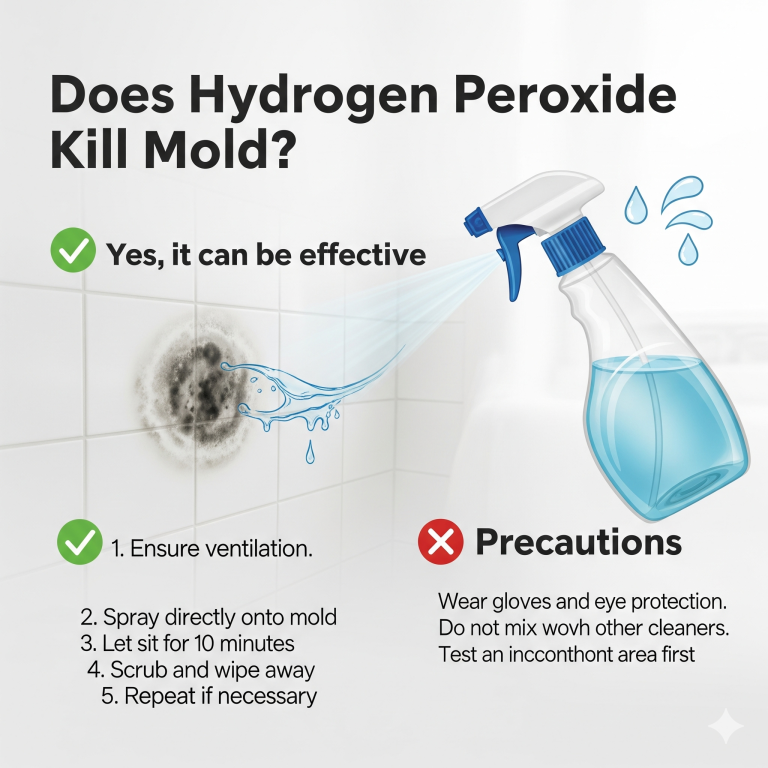
Table of Contents
Here’s a look at ten big Law and order organized crime refers to criminal networks that exploit legal systems while engaging in illicit activities and corrupt practices. groups and what they do to hurt people. These groups stay hidden, sell illegal stuff, and even change laws to work in their favor. They play tricks with legal systems, which is strange since these laws are set to stop them. Below, we name and talk about ten top crime groups worldwide, what they do, and how they ruin lives. Knowing this helps us make plans to stop them and fix the rule of law.
1. Sinaloa Cartel (Mexico)
The Sinaloa Cartel started by Joaquín “El Chapo” Guzmán is big in selling drugs worldwide. It works mainly out of Mexico, making and selling drugs such as meth, coke, and heroin in the USA and global markets.
Effect on People:
Violence and Bribes: Their work causes mass violence in Mexico, leading to many deaths. They mix into politics and law to cause big-scale bribes.
Harm to Economies: Drug trades hurt real businesses, pulling money from good places into bad acts.
Twisting Law and Order:
This cartel shows how Law and order organized crime use laws for bad, making a fake legal system that goes against actual state control.
2. ‘Ndrangheta (Italy)
Started in Calabria, Italy, the ‘Ndrangheta is a strong crime ring spread worldwide. Unlike others, it uses a loose setup. This makes it stay solid and tough to break.
Effect on People:
Dirty Money: ‘Ndrangheta cleans dirty funds through true businesses, messing up money systems.
Breaking Trust: Their hold over towns breaks trust in public offices, and people live in fear and do what they’re told.

Twisting Law and Order:
They blend legal shops to hide crimes, showing how hard it is to tell legal from illegal in “law and order organized crime.”
Also Read:
3. Russian Mafia (Multiple Fractions)
Russian Mafia is an organization of some Russians and groups of the crime of the former-Soviet republic. Russian Mafia groups of crime have spread their operation in other nations of the world and have been involved in other illicit businesses like weapons trade, computer crime, and human trafficking.
Socio-Impacts
Cybersecurity Threats: Their cybercrimes are posing massive threats to the internet networks of the whole world and privacy of personal information.
Political Influence: Political influence has been awarded to some parties by subversion and wiretapping of democratic processes.
Law and Order Organized Crime
The global reach of the Russian Mafia and border mobility make it an extremely difficult case to enforce the law in an international “law and order organized crime” case.
4. Yakuza (Japan)
Yakuza is an overseas umbrella of Japanese crime syndicates that have extended their activities to the global arena. Yakuza had long been deeply rooted in Japanese society but was undergoing increasing pressures of official investigation and police suppression in recent decades.
Social Impact
Economic Exploitation: Yakuza has involved criminal entrepreneurial ventures such as extortion and illicit gaming against poor and disadvantageous communities.
Cultural Impact: Visibility on-screen and previous presence in Japanese society prevent criminal cases against their criminal operation from being prosecuted easily.
Law and Order Organized Crime
The semi-legality of the Yakuza and their infiltration into Japanese society prevent drawing lines between legal and illegal operations, thus creating the “law and order organized crime” issue.

5. Triads (China and Hong Kong)
Triads are Chinese traditional transnational organized crime syndicates. They engage in all forms of criminality, such as drug trafficking, human trafficking, and extortion.
Societal Impact
Human Trafficking: Triads have been linked to human trafficking syndicates wherein they traffic victims into sexual exploitation and forced labor.
Community Control: Their control within some communities is capable of suppressing dissent and suspicious policing.
Law and Order Organized Crime
Triads’ centuries-old traditions well ante-date specific communities and their capacity to present as lawful businesses encapsulate the dilemma of identifying and combating “law and order organized crime.”
6. Los Zetas (Mexico)
Los Zetas were created by former military member elites and are Mexico’s most violent and militarized of its cartels. They are responsible for having committed a great number of crimes such as drug trafficking, kidnappings, and extortions.
Societal Impact
Militarization of Crime: Adopted the militarized tactics, their activities have instigated crime with increased violence in their region, instilling fear and insecurity everywhere.
Human Rights Violations: Los Zetas are responsible for a full spectrum of human rights violations, including mass murders and abductions.
Law and Order Organized Crime
The military beginning and institutionalized behavior of the group complicate for the traditional law enforcement methods to subdue “law and order organized crime.”.
7. Mara Salvatrucha (MS-13) (Central America and United States)
MS-13 is an international crime syndicate based in Los Angeles but originally from El Salvador. MS-13 is famous for criminal behavior and violence.
Impact of Society:
Society violence: The presence of MS-13 contributes to spreading audacious violence in society, targeting mostly youths and vulnerable members.
Immigration Problems: The presence of the group has also brought about immigration policy problems and public safety concerns.
Law and Order Organized Crime:
MS-13’s worldwide reach and ability to turn around immigration mechanisms against itself characterize the problem of addressing “law and order organized crime” in a world that is increasingly globalized.

8. Al-Qaeda (Global)
Al-Qaeda is an Islamist militant group and a terrorist organization. Al-Qaeda has been responsible for most of the terrorist activities across the globe. Al-Qaeda is ideologically motivated most, but it also runs criminal operations to finance its activities.
Law and Order Organized Crime:
The fact that Al-Qaeda exists and operates across borders and engages in crime as well as terror activities makes it increasingly challenging to have law outside of one’s own territory, and that is precisely what “law and order organized crime” is all about.
9. Jamaican Posse (Jamaica and U.S.)
Jamaican Posse refers to any criminal organization with its origin in Jamaica that is involved in drug trafficking and other crime.
Impact on Society
Involvement in the Drug Trade: Their involvement in the drug trade has been the cause of substance abuse issues in communities impacted.
Finally, the reality of law and order organized crime represents one of the most sophisticated dangers confronting contemporary societies. The top ten offending syndicates under analysis—from the Sinaloa Cartel to the Russian Mafia and the Yakuza—are testaments to the extent ingrained and extensive such organizations have become. These syndicates not only conduct the trafficking of drugs, weapons, and humans but also penetrate legally respectable areas such as politics, finance, and law enforcement. They fuel violence, corrupt institutions, destabilize economies, and undermine public confidence in institutions that are supposed to protect citizens.
What is so nefarious about law and order organized crime is its power to operate undercover within legal frameworks— laundering proceeds through legitimate businesses, corrupting public officials, and taking advantage of legal loopholes. This leads to a corrupted rule of law in which criminal networks thrive under the cover of legitimacy. To counteract this, global cooperation, institutional change, and strong legal institutions are necessary. Societies should not only uproot these groups but also attack the underlying causes—poverty, inequality, and poor governance—that enable such groups to proliferate. Law and order can only then really be restored and safeguarded against being hijacked by the very elements it wishes to repress.

FAQs:
What Is Organized Crime and How Does It Affect Society?
Organized crime describes criminal enterprises that organize illegal activities that generate profit, some of which include drug trafficking, human trafficking, human smuggling, extortion, and much more. Organized crime creates problems and negatively affects society as a whole because it promotes violence, corruption, and establishes pathways for the entry of underground and illegal operations that undermine any economic stability. Organized crime groups undermine legal markets and systems of governance, create fear in neighborhoods and communities, they obstruct social development and growth with long lasting effects on victims and economies on communities that are oppressed.
Who Are the Key Players in Organized Crime?
Organized crime’s key players include crime syndicates, organized crime cartel leaders, and street gangs, plus all of the associated operatives like drug dealers, smugglers, and enforcers. Many of these groups have also created links to corruptors like officially corrupt politicians and law enforcement officials that then can help provide cover or support for whatever organized crime group is in the space. Money launderers, recruiters and facilitators and financing groups also play an inextricable role in maintaining and expanding organized crime in different communities and sectors.
Where Does Organized Crime Thrive Most?
Organized criminal activity thrives in poorly governed areas, as collusion and poor economic conditions create conditions for remarkable failings of law enforcement. Organized crime thrives in the chaotic urban landscapes and extreme poverty as they create conditions for exploitable and oppressed populations. Organized criminal activity impacted by conflict, such as regions of Latin America, South Eastern Asia and Eastern Europe, benefit from underreported illegal commerce and a lack of control.
Why Is Law and Order Crucial in Battling Organized Crime?
Law and order is crucial to the fight against organized crime because it is the responsibility of police and the courts to unaccountable criminals, deter criminals from engaging in criminal acts, and protect the community. When law enforcement and the courts are dealing with organized crime as intended, they disrupt and dismantle criminal networks, punish wrongdoers, and discourage and limit corrupt actions.



